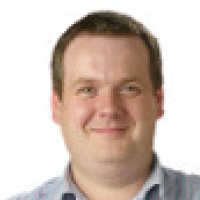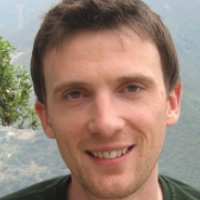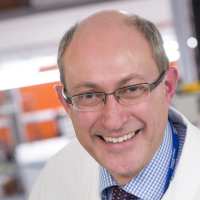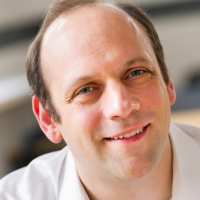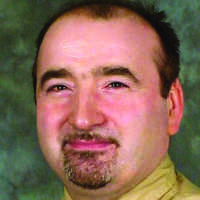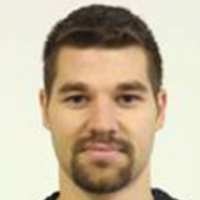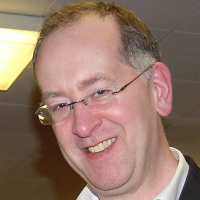Academic Staff

Dr Bill Proud Bill Proud initially trained as a Chemist, moving into the field of Shock Physics during research undertaken at the Cavendish Laboratory in Cambridge from 1994. In 2003 he was appointed Head of the Fracture and Shock Physics Group in Cambridge. In 2009 he moved to Imperial College London where he was initially appointed Technical Director and then Director of the Institute of Shock Physics. He was closely involved with the foundation of the Royal British Legion Centre for Blast Injury Studies and is an associate director of the Institute of Security Science and Technology. He has undertaken research for a wide range of industrial organisations and government agencies. In 2013 he became the founding chair of the Shock Waves and Extreme Conditions Group of the Institute of Physics. A keen internationalist he has been involved in ERASMUS+ collaborations with Portugal, Romania and France as well as hosting scientists from China, Russia, Germany and the USA. He is the current chair of the Expert Advisory Group on Energetic Materials as part of the MoD-Industry funded Weapon Science and Technology Centre. Dr Proud, his students and collaborators have received prizes and awards over the years including the UK National Award for High-Speed Photography and Photonics, and the Schardin Medal for High-Speed Photography. |
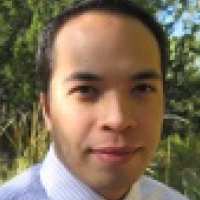
Dr Daniel Eakins Dan Eakins joined Imperial College from Los Alamos National Laboratory, where he studied optical diagnostics for laser-driven shock physics experiments, and investigated the kinetics of shock-induced phase transformations in silicon. He was awarded his Ph.D. in May of 2008 from the Georgia Institute of Technology, where he investigated dynamic metal plasticity at intermediate strain-rates, the shock compression of metal powders, and shock-induced reactions in nickel-aluminum powder mixtures. He has been recognised with several awards, including the National Defence Science and Engineering Graduate Fellowship (NDSEG), and LANL Director's Postdoctoral Fellowship. Dan has served as an At-Large Executive Committee Member for the American Physical Society's GSCCM, and currently sits on the Governing Board of DYMAT. |
|
Dr Simon Bland Simon Bland works for the Plasma Physics Group at Imperial College and was one of the founder members of the Institute of Shock Physics. He received a MSci. Degree in Physics from Imperial in 1997, and in 2001 completed his Ph.D. dissertation on the Dynamics of Wire Array Z-Pinch Implosions within the Plasma Physics Group. From 2001 until 2007 he worked as a Research Associate and then Research Fellow taking charge of the day to day operations on the in-house 2MA MAGPIE generator. In 2007 he was awarded an EPSRC Advanced Research Fellowship before becoming a Lecturer in 2009. Simon's research interests revolve around pulsed power produced high energy density physics experiments - particularly exploring the efficient production of ultra-high pressures and densities and the interaction of shock waves in dense plasmas and condensed matter. He runs the cutting-edge MACH pulsed power facility and is developing new X-ray sources for radiography, diffraction and absorption diagnostics. Over the course of his career he has authored/co-authored more than 90 published journal papers, has spoken at multiple conferences and science festivals, and enjoys showing the public the Plasma Physics Group's work. |
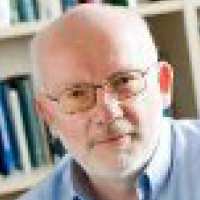
Professor Steve Rose Steve Rose joined Imperial College as the Head of Plasma Physics in December 2006, a post he held until September 2012. He became the Director for the Institute in 2009, and became the Founding Director in 2010. He has worked in plasma physics for all his career, with a particular emphasis on plasmas produced using high-power lasers. Much of this time was spent at the two high-power laser facilities in the UK; the Rutherford Appleton Laboratory's Central Laser Facility, where he became the Associate Director for Physics, and at AWE where he was the Head of Plasma Physics. In October 2011 he was appointed to the post of Deputy Principal (now Vice-Dean) of the Faculty of Natural Sciences at Imperial College. |
|
Impact is a fundamental solar system process: it builds planets from dust, it shapes planetary surfaces, it causes mass extinction and it threatens the survival of humankind. Gareth’s research explores the many consequences of impacts in the solar system through the development and application of numerical impact models. His interests include all aspects of impact cratering and other, related violent geologic processes. Gareth develops and uses numerical models to study impact processes, their consequences on Earth and in our Solar System, and related large, rapid, violent geologic processes, such as large rock avalanches. |
|
Professor John Dear has been an academic for 25 years in the Mechanics of Materials Division of the Department of Mechanical Engineering. John has been successful in obtaining research grants worth a total of over £7 million from the UK and US government (EPSRC, ONR, MRC & DTI/TSB), European Commission, UK and overseas companies. His research expertise is structural integrity of materials including manufacturing and micro-structural effects. He has published over 200 papers; contributed to 10 books, supervised 42 PhDs and 12 RAs. Examples include: creep life of materials in power-station plant, aerospace and automotive components, water distribution plant and high-strain rate properties of composite and a wide range of other materials for defence applications and also for medical research. |
|
Dr David Dye joined the Department of Materials at Imperial in 2003 from the National Research Council in Chalk River, Canada. His research interests focus on the micromechanics of jet engine, aircraft and reactor materials, particularly superalloys, titanium and zirconium. His group works on problems across the life-cycle from alloy design to processing to fatigue and failure. A lot of the work involves advanced TEM techniques, complementing work at neutron and synchrotron major facilities like ISIS, Diamond, ESRF and SNS. He has also begun to perform ps-duration X-ray experiments at LCLS on shock physics. He has graduated 16 PhD students and is widely cited for his work of titanium and nickel alloys. In 2010 David was awarded the IOM3 Harvey Flower Titanium Prize. |
|
Professor Lorenzo Iannucci joined the Department of Aeronautics at Imperial in 1998 and currently holds the RAEng/DSTL chair on multi-scale composite design. Lorenzo’s research interests lie in material and modelling techniques relevant to dynamic analyses, low to high velocity impact testing and modelling using LS-DYNA, ABAQUS and DYNA3D, genetic algorithms for impact optimisations, and design of UAV and morphing structures. Lorenzo has introduced the DYNA suite of codes as a tool which can be used on a range of highly non-linear design problems. He has implemented several new composite material models into the codes, which have been used on a range of projects, both in industry and within the department. He is currently involved in research funded by the CEC, EPRSC, DSTL and the TSB. |
|
Spyros is the Biomechanics Theme Lead for the Royal British Legion Centre for Blast Injuries Studies at Imperial College London. He received his first degree in Mechanical Engineering in 2004 from the National Technical University of Athens, Greece, and his PhD in biomechanics in 2008 from Imperial. Since then Spyros has worked in and supervised projects related to finite element (FE) modelling of human joints, material characterisation of soft tissues of joints, physical models of lower limb injury and their mitigation, design of arthroscopic devices, and engineering education. Between 2010-12 Spyros was the ABF The Soldiers' Charity Research Fellow, acting as the engineering lead within a multidisciplinary group comprising clinicians, scientists and engineers, looking primarily at lower limb injury mechanics and injury mitigation technologies. This motif has carried over since the Fellowship, only now in addition to the lower extremity his research interest is also on injury to the pelvis and the spine. Roland Smith is Professor of Laser Physics and rejoined Plasma Physics after spending some 25 years working in the Quantum Optics and Laser Science Group at Imperial College. The two research groups have strong areas of common interest, particularly in the creation and use of advanced high-power laser systems to study matter under extreme conditions of temperature, pressure and magnetic fields. Much of this work at Imperial College is conducted in collaboration with Blackett Laboratory Laser Consortium, where he is associated director. He is an experimental physicist with research interests including high power and ultra-short pulse laser development, experimental laser matter interaction physics (particularly with atomic cluster and nanoscale targets), laboratory based experimental astrophysics and attoscience. He is Director of the high-energy Cerberus laser system which was used as a shock driver in forthcoming joint experiments with the ISP.
|
Research Associates
+44 (0)20 7594 1344
Dr David Chapman
d.chapman@imperial.ac.uk
Dr David Sory
d.sory14@imperial.ac.uk
Dr Lukasz Farbaniec
l.farbaniec@imperial.ac.uk
Dr Gareth Tear
g.tear12@imperial.ac.uk
Dr Thuy Tien Nguyen
thuy-tien.nguyen08@imperial.ac.uk
ISP Alumni RA's
Tom White (Research Associate)
PhD Students
| Danyal Magnus - EPSRC/CBIS PhD | |
| Emilio Escauriza - ESRF/FLF PhD | |
| Liam Smith - AWE-CASE PhD | |
| Jordan Homan - 1851 Fellowship/Ind PhD | |
| George Rowland - First Light Fusion PhD | |
| Jon Glanville Industrial PhD | |
| Craig Hoing Industrial PhD | |
| Jasmina Music ISP PhD | |
| Thomas Ota - Industrial PhD | |
| Jack Patten - HEXMAT PhD | |
ISP PhD
Gareth Tear ISP PhD
Thuy-Tien (Luz) Ngoc Nguyen ISP PhD
Amnah Khan ISP PhD
Samuel Stafford ISP PhD
Laura Chen ISP PhD
Mark Collinson ISP PhD
Dr David Jones ISP PhD
Michael E. Rutherford ISP PhD (see also Michael Rutherford's personal web page)
John Winters ISP PhD (see also John Winters' personal web page)
David Sory ISP PhD
Marcus Weinwurm
Dr. Chiara Bo
Dr. William Neal
James De'Ath (MPhil)
